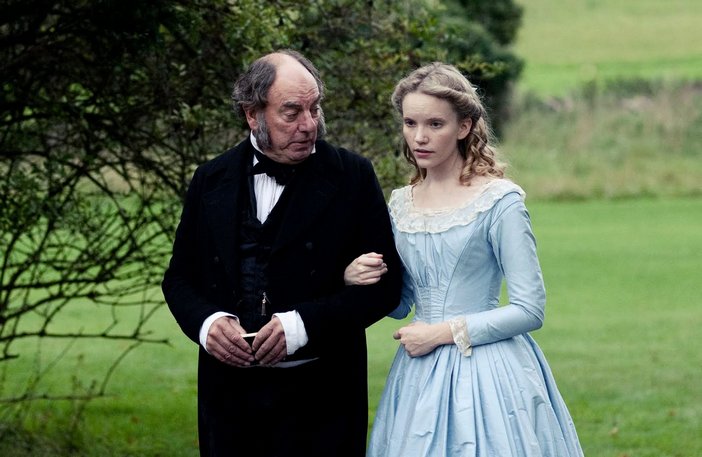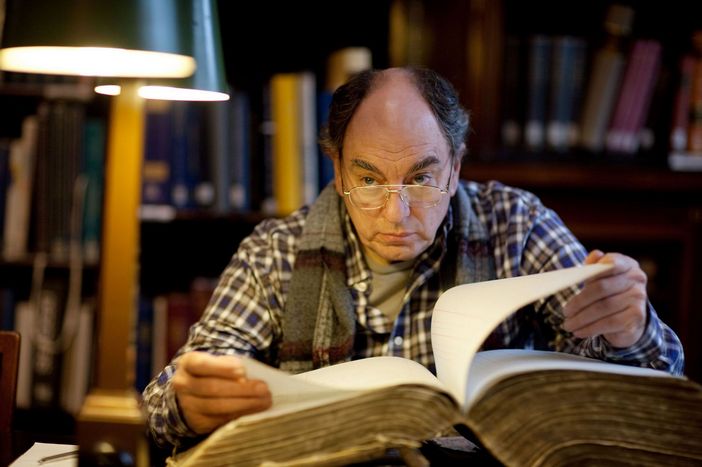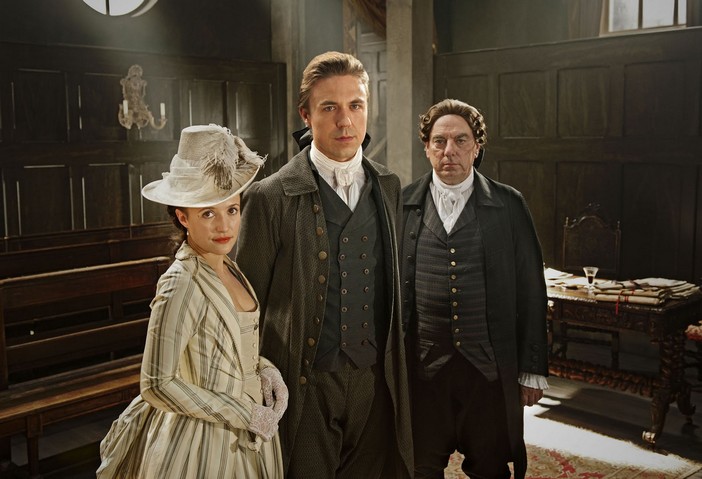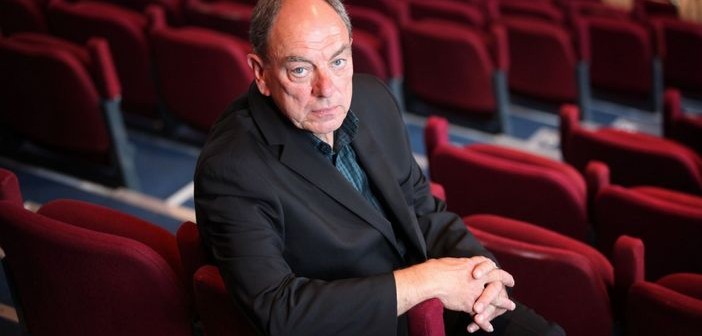I caught up with Alun Armstrong during rehearsals for Ionesco’s Exit the King, opening at Theatre Royal Bath on 20th November. Alun plays the once great King Berenger the First, who, aged 400 years old, is on his last legs and ruling over a decaying kingdom. Now the party is over and the end is nigh…
Tell me about your current role in Exit the King?
The king is going to die and he personifies Ionesco’s view of how little real communication there is between people. Ionesco himself was obsessed with death from a young man and Berenger, the king, is a naïve character who doesn’t really understand himself or other people, and can’t face death with any kind of realism or acceptance. It’s a very difficult play; it’s very bleak and wordy – the challenge is to make it believable emotionally whilst spouting this rather intense prose. It’s very funny as well – as there is something essentially absurd about life and death. It seems in our minds ridiculous that it’s going to come to an end.
Describe the challenges of playing a character 400 years old…
He is said to be 400 years old, but I’m sure he won’t look 400 hundred years old; after all we don’t know anybody 400 years old or what they would look like. [He laughs]. The play’s a metaphor for every person’s death and it’s interesting because it charts medically, with accuracy, the thought processes dying people go through.
Has playing King Berenger made you think about death?
Yes it has. It’s one of those plays, because it’s philosophically quite deep and psychologically accurate.

You’ve had such a brilliant career, is there any role you’d like to play all over again?
None of them – I enjoy moving onto something new.
What was it like being in the first cast of Les Misérables?
It was incredible because we had no idea how it was going to be received. I was rather fearful that it wouldn’t go down that well, as musicals have a tendency to be a bit trite. Some of the critics were a bit sniffy at first, but there were queues around the block despite the reviews. I was at the RSC as we rehearsed Les Misérables and I would get up at 6am, be driven to Coventry, take a train to London, rehearse all day there and then get the train back in the evening to star in Trolieus and Cressida in the evening. It was quite tiring. Up until starring in Les Misérables I’d never done a play for a whole year. I’d mainly worked at the RSC or done individual plays for the National Theatre where they have shorter runs. Suddenly I was doing 8 shows a week – and it was a long show. It did become repetitive after a while and it was difficult to get your enthusiasm up, although I never got sick of singing that wonderful song, ‘Master of The House’.
You’ve played such varied parts, what qualities do you look for in a character?
I suppose the thing that finally clicks with a character is when there’s something in myself that I can relate to, or something in my memory or experience that I can feel psychologically. When you’re young you take what’s on offer. There have been times when I needed to work and the part wasn’t great but the money was okay – particularly in television where you’d have a poor writer but some celebrated actors in the cast. You just have to be committed to doing your best.
How important is the rest of the confirmed cast and crew to whether you sign up to a part?
It’s not something that’s bothered me too much, unless I’ve got personal history with someone, or I’ve had a row with someone, but that doesn’t happen often, I’m a fairly amiable sort of chap!

Do you think you need to be a sociable person to act?
It certainly helps. Actors are a strange anomaly – you get some actors who are pathologically shy and I think part of the acting bug is about being people you can’t be in real life, and that allows you to experience a side of you you would either like to be or haven’t experienced being – that’s part of the thrill. I suspect this is driven by a fear of how we’re perceived ourselves. Somehow we’re daring ourselves to do something we’re deeply self-conscious of. I’ve played some despotic psychopaths in my time and they get into you. My wife always says that when I’m playing really horrible characters I turn a bit dark – so she’s in for a rough ride with this one, as King Berenger is a terrible depressive!
Does your wife help you with your lines?
She used to when I was younger but she read a script once, and, when it came to me doing my lines, I noticed that she wasn’t even looking at the script, she was filing her nails or something, and I said: ‘are you not reading that?’ and she’d learnt it in one session. So I said: ‘what I’m struggling with one part and you’ve learnt all the other ones?!’
Who has been your favourite co-star?
Francis Barber. I thought she was just gifted and brilliant and funny, so she’d probably be top of my list. We were both in the play The Actress – she was Marilyn Monroe and I was Albert Einstein.
Do you prefer acting on stage or screen?
I always want to be in what I’m not in at the moment. If I’m in the theatre I think: ‘ooh wouldn’t it be nice to be doing telly – it would be so much easier’, and then if I’m doing telly or film I’m thinking: ‘It would be nice to be doing some theatre now – it would be a real challenge.’ I’m never completely happy. With plays you get to know them inside out, you don’t just know your character you know the play and, particularly if it’s a really good play, you want it to be remembered. Obviously you want people to think that you’ve done a good job, but you want the play to be a great experience.

How does your preparation for the theatre vary from a television/film role?
With theatre you’ve got time to say the lines again and again so they get into your muscle memory. As somebody once said to me when I was a young actor: ‘you never really learn anything, you just become familiar with it.’ I used to think: ‘how will I ever really know this character’, but you just become accept it and become accustomed to being in that skin. You can only play it using who you are. You just have to give yourself to it and risk.
Has receiving a bad review ever bothered you?
It bothers me a little bit, not because I think the critics know best but because so many people, including the people that employ us, put such store by what they say. Unfortunately producers take note of reviews and there’s just no telling what the critics’ reaction will be.
Do you watch yourself on television?
I used to watch everything religiously, not through vanity but because I wanted to see how it worked and I felt like I was still learning, but now I’ll only watch it if it’s a one off thing.
I’ve heard that you’re starring in the Christmas Special of Downton Abbey, how was that?
It was great fun. I had a lovely juicy character – a butler who was really up himself and putting on the posh. He looks down at all the staff and is very bossy with them so they gang up on him!
Is there any iconic role that you still hanker after playing?
It’s only when I’m out of work that I think about things like: ‘what would be good for me to do next?’ or, ‘what would be good for my career’. I’m just happy working. I tend to be rather fatalistic about my career. I’ve never had a plan or read plays and looked for parts. A lot of actors say, ‘I’ve always wanted to play such and such’ but maybe I’m just lazy. I still can’t believe that I’ve managed to make a living out of doing this.
Alun Armstrong is appearing in Exit the King at Ustinov Studio, Theatre Royal Bath 20 Nov – 20 Dec. For more information and to book tickets call 01225 448844 or visit the website.




